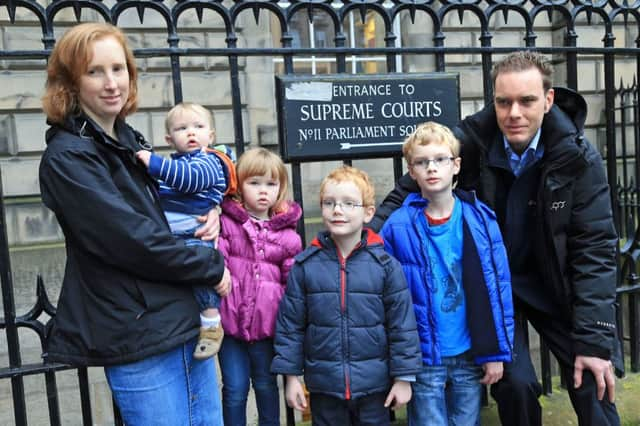Act will affect every family with children


The Children and Young People (Scotland) Act 2014, which received Royal Assent in March 2014, will assign a “named person” to every child in Scotland up to the age of 18 (and even beyond should the child remain in school after 18). The only exception applies to children of persons in the armed forces.
The named person, for example a midwife, health worker or school teacher, will have the power to receive and share information about the child in a number of circumstances. The legislation as presently framed does not provide a parent with any say in who the named person may be and indeed once appointed, the identity of that person may not be released. Whilst already operating in parts of Scotland, the scheme is due to be rolled out nationally by August 2016.
Advertisement
Hide AdAdvertisement
Hide AdThe functions that the named person will undertake include advising and supporting the child or parent, helping the child or parent access support or services or discussing or raising a matter about that child with other public bodies.
The arguments critical of this legislation include that:-
• resources presently available should be used to ensure those most a risk are helped;
• it is heavy-handed and an unnecessary intrusion on the rights of parents to determine how to bring up their children;
ldata sharing/retention provisions of the act do not conform with European law and are therefore are unlawful;
• even if they do not breach EU law, they do not comply with the protections set out in the Data Protection Act 1998 including the concern that the named person may apply the 2014 act without having to involve the child or parents, seek their consent, or tell them when they are receiving/sharing the information; without (1) any assessment into the child’s particular need for heightened state supervision or (2) the parents having a right to opt out of the scheme, the act is disproportionate and as such constitutes a breach of fundamental rights protected through the ECHR, EU and the common law.
The arguments in support include that:-
• the scheme promotes, supports and safeguards the wellbeing of children, applying the “GIRFEC” (getting it right for every child) approach and the SHANARRI principles – safe, healthy, achieving, nurtured, active respected, responsible and included children;
• the information sharing which the 2014 act authorises is said to be necessary for integrating the working relationships between social services and other public bodies in order to identify children at risk at an early stage; and
• the 2014 act is just the legislative framework for the named person service and does not create a complete and free-standing scheme and that guidance will follow.
Advertisement
Hide AdAdvertisement
Hide AdA petition to judicially review the legislation, on behalf of a number of charitable bodies and individuals, was heard in the Outer House of the Court of Session in November 2014. After four days of legal arguments, the court ruled that the provisions contained in the 2014 act were lawful. It also decided that the charitable bodies that challenged the legislation did not have sufficient interest to bring the case to court as they were not “victims” under the ECHR, not directly affected by the act and did not possess expertise in child welfare.
Following that decision, an appeal was heard in the Inner House in June 2015, which upheld the original decision as it did not interfere with Convention rights, it could operate within data protection laws and restrictions to confidentiality of medical records was justified. However, it was decided that the charities did have sufficient interest to bring the case due to their genuine interest in the matter (although they were not found to be “victims”). The case has been appealed again is due to be heard by the Supreme Court in March 2016.
What is clear is that there are strongly held views aand however it progresses it will impact on every family in Scotland with children.
• Mark Boni is a solicitor with Balfour+Manson www.balfour-manson.co.uk